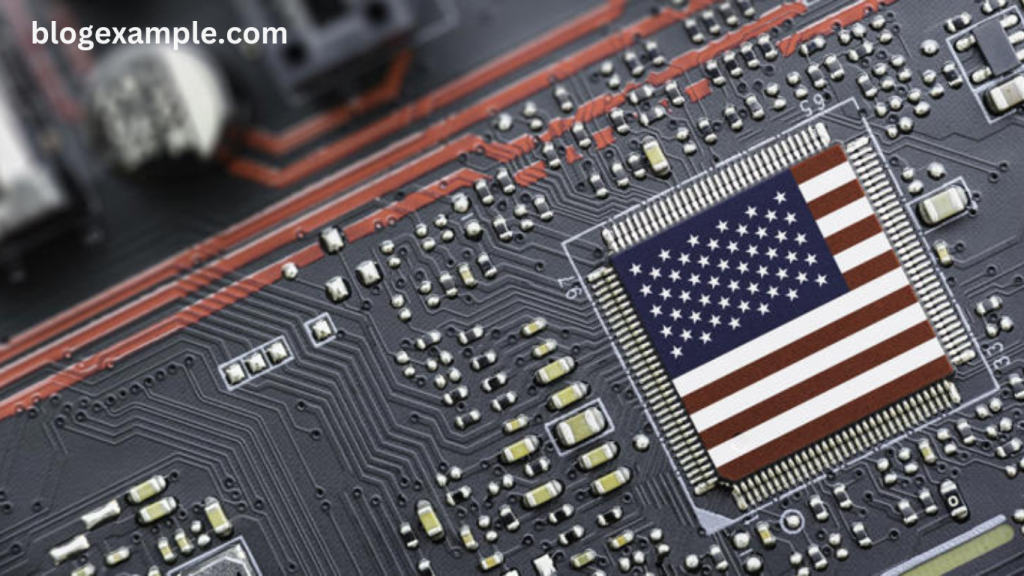A fresh move from the U.S. government signals a deeper look into the heart of global tech supply chains. An investigation is now underway targeting the import of semiconductors and electronic components. This development could mark a turning point in the nation’s trade strategy, especially in the high-stakes tech sector.
Focus Sharpens on National Security and Fair Trade
The central concern behind this investigation revolves around national security and the fair trade of advanced technologies. Officials are highlighting the potential risks posed by relying heavily on foreign-made chips, particularly those from countries considered geopolitical rivals. This approach reflects a broader shift toward securing supply chains and protecting strategic industries.
Commerce Department Takes the Lead Role
The U.S. Commerce Department is heading this inquiry. It will assess whether current import patterns are harming domestic production or putting sensitive technologies at risk. By gathering data and input from industry stakeholders, the department aims to map out vulnerabilities and consider policy responses that align with national interests.
China Remains in the Spotlight
Although the investigation is broad, much of the attention inevitably lands on China. Over the years, China has become a dominant player in electronics manufacturing. With ongoing tensions and concerns over intellectual property, cybersecurity, and economic imbalance, the probe is likely to revisit many longstanding trade debates.
Possibility of New Tariffs on the Horizon
One key outcome of this investigation could be the introduction of new tariffs. These would target imports found to undermine domestic industries or pose a strategic risk. If implemented, tariffs could reshape market dynamics and raise costs for manufacturers and consumers, especially those reliant on imported components.
Industry Reacts With Caution and Concern
Initial reactions from industry leaders are mixed. Some welcome the investigation as a step toward strengthening American innovation and supply chain resilience. Others warn that new tariffs could lead to higher prices and disrupt existing partnerships, adding more pressure to an already strained global electronics market.
Push to Revive Domestic Chip Manufacturing
This investigation aligns with the broader push to bring semiconductor manufacturing back to U.S. soil. Federal initiatives like the CHIPS Act already reflect a growing desire to restore American leadership in the tech sector. By examining import flows and market dependencies, the new probe supports efforts to reestablish local production capacity.
Global Tech Firms Keep Watch on U.S. Policy
As the U.S. explores its options, major global tech firms are closely monitoring every move. Washington’s policy changes can ripple through global supply chains, affecting production schedules, investment plans, and trade relationships. The probe’s outcome could reshape how and where companies build their next generation of products.
Timeline and Public Input Still Developing
While the investigation has been formally announced, the entire timeline and scope are still taking shape. The Commerce Department is expected to collect public comments and technical data in the coming weeks. This feedback will help shape the recommendations and decisions that follow.
Strategic Realignment in the Tech Economy
This investigation signals a more profound strategic realignment in the tech economy. As nations seek to control the tools of the future—AI chips, quantum processors, and advanced electronics—the rules of engagement are shifting. Governments are taking a more active role in shaping who makes what, where, and under what conditions.
Economic Impacts Could Stretch Beyond Electronics
Though the focus is on semiconductors and electronics, the economic ripple effects could reach far beyond. Tariffs or restrictions may affect downstream industries, from automotive to consumer gadgets. Businesses across sectors may need to reevaluate sourcing strategies and prepare for changing cost structures.
Trade Partners May Respond With Their Measures
International reaction is another piece of the puzzle. Trade partners affected by new U.S. policies could respond with countermeasures or negotiate for exemptions. The investigation’s outcome may shape the next phase of global trade relations, particularly in tech-heavy sectors.
Technology at the Center of Economic Policy
With this latest move, technology once again finds itself at the center of economic policy. As countries navigate the risks and opportunities of a digital future, the ability to control foundational technologies becomes a core element of national strength. The decisions made during this investigation will carry lasting consequences.
Frequently Asked Questions
What is the U.S. investigating regarding chip and electronics imports?
The U.S. is investigating whether foreign imports of semiconductors and electronics pose a threat to national security or harm domestic industries.
Why is national security a concern in this investigation?
Certain imported tech components could be vulnerable to cyber threats or espionage, making security a top priority in the investigation.
Could this lead to new tariffs?
Yes, if the investigation finds unfair trade practices or strategic risks, new tariffs may be introduced on specific imports.
How might this impact consumers?
Tariffs or trade restrictions could raise the cost of electronics and devices that rely on imported components.
What countries are most likely affected by this probe?
China is expected to be heavily scrutinized, but other major tech-exporting countries may also come under review.
What is the CHIPS Act and how is it related?
The CHIPS Act aims to boost domestic semiconductor production, aligning with the goals of this investigation to reduce foreign dependency.
How long will the investigation take?
Timelines vary, but early stages include public input and data gathering, with policy recommendations following thereafter.
Can companies influence the outcome?
Yes, companies can submit comments and data during the public consultation phase to help shape the investigation’s findings.
Conclusion
The U.S. investigation into chip and electronics imports represents a strategic move toward safeguarding national security and revitalizing domestic tech industries. While potential tariffs and trade shifts could create short-term disruption, the long-term aim is to foster innovation, reduce dependency, and build a stronger foundation for technological leadership. The world is watching closely, and the decisions made here could ripple across global supply chains and trade relations for years ahead.

